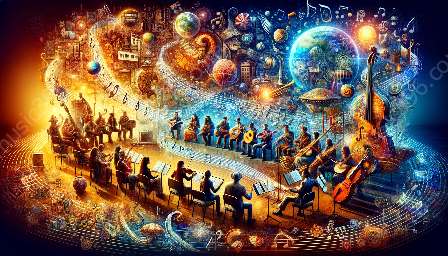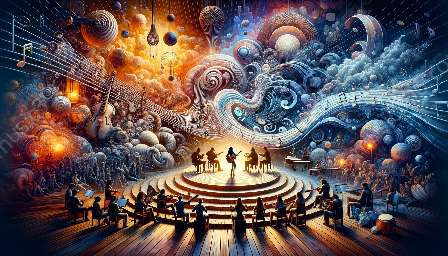Music holds immense power to shape and reflect cultural norms and values, playing a significant role in influencing individual and collective behaviors and beliefs. This influence is deeply intertwined with the psychological impact of music and its connection to culture.
The Psychological Impact of Music
Music has the ability to evoke powerful emotional and psychological responses in individuals. It can influence mood, cognition, and behavior, serving as a means of self-expression, emotional regulation, and identity formation. The lyrics, rhythm, melody, and harmony of music can deeply resonate with the human psyche, affecting perception, attention, memory, and even decision-making. This psychological impact is further amplified when considering the cultural context in which music is experienced.
Understanding Music and Culture
Culture encompasses a complex web of beliefs, values, traditions, and behaviors shared by a group of individuals. Music, as a cultural artifact, both reflects and shapes these elements. Different musical genres, styles, and lyrics often reflect the unique characteristics and values of specific cultures. Moreover, music serves as a vehicle for the transmission and reinforcement of cultural norms and values, contributing to social cohesion and identity formation within communities.
Music as a Reflection of Cultural Norms and Values
Music acts as a mirror that reflects the prevailing values, attitudes, and social dynamics within a given culture. For example, certain genres of music may celebrate individualism and self-expression, while others may emphasize collectivism and community cohesion. The lyrical content of songs can convey societal messages, shape perceptions of social issues, and influence attitudes towards gender roles, relationships, and societal norms.
Music's Role in Shaping Cultural Identity
Music plays a pivotal role in shaping and reinforcing cultural identity. It serves as a symbolic representation of a community's history, struggles, triumphs, and aspirations. Whether through traditional folk music, national anthems, or contemporary popular music, cultural identity is perpetuated and revitalized through musical expression. In this way, music becomes a dynamic force in preserving and evolving cultural norms and values.
Impact of Globalization on Music and Culture
Globalization has significantly influenced the interplay between music and cultural norms. With the widespread accessibility of diverse musical styles and artists from around the world, cultural boundaries have become more porous. This has led to the fusion of different musical traditions and the emergence of hybrid cultural expressions. While globalization presents opportunities for cross-cultural exchange, it also raises questions about the preservation of traditional cultural values within an increasingly interconnected world.
Music's Influence on Social Change
Music has historically been a catalyst for social change, challenging existing norms and advocating for cultural and political transformation. From protest songs that fueled social movements to anthems that unite communities in moments of adversity, music has the power to inspire collective action and shape the course of history. Through its ability to evoke empathy, solidarity, and resilience, music can foster cultural shifts and influence societal norms and values.
Conclusion
Music wields profound influence over cultural norms and values through its psychological impact, reflection of cultural identity, and role in social change. By recognizing and understanding the intricate relationship between music and culture, we gain valuable insights into the complexities of human society and the dynamic forces that shape our beliefs and behaviors.






















